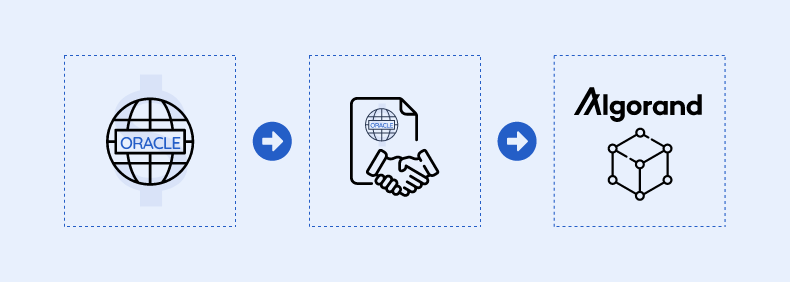mule
Showing 136 posts related with mule.
-
 Beginner · 15 minutes or less
Beginner · 15 minutes or lessRestful Algorand API with Spring Boot
By leveraging a simple Algorand Spring Boot starter, and implementing the Spring Web library, we can easily standup a Restful API to allow users to interact with the Algorand ecosystem.
-
 Beginner · 1 hour +
Beginner · 1 hour +Song Vote on Algorand - Create and deploy a fully functioning Dapp
Create and deploy dApp to vote on songs (or other things) on the Algorand test network. By the end you will have a good understanding of the full development pipeline on Algorand!
-
 Intermediate · 30 minutes
Intermediate · 30 minutesAtomic Transactions Web and Console Applications
This is a DApp walkthrough to generate account addresses and mnemonic keys, fund the account, check the account details, and also perform transactions. This was built using the C#/.NET framework to communicate with the Algorand Blockchain.
-
 Intermediate · 30 minutes
Intermediate · 30 minutesScheduling Transactions for Sending in the Future
This tutorial shows how to schedule a payment transaction. Instead of processing the payments now, you can schedule if for a future date/time.
-
 Beginner · 15 minutes or less
Beginner · 15 minutes or lessCreate an Account on TestNet with Python
Generate a new account, fund it, and check your balance on TestNet using the Python SDK.
-
 Beginner · 15 minutes or less
Beginner · 15 minutes or lessAccess BetaNet Network using your own node and goal
This tutorial describes how to setup and update a BetaNet network using your own node and goal.
-
 Beginner · 1 hour
Beginner · 1 hourCreating an NFTMarketplace
Creating an NFTMarketplace application where users can mint, buy and sell NFTs.
-
 Beginner · 1 hour
Beginner · 1 hourCreate and test smart contracts using Python
Create two smart contracts using Python Algorand SDK and PyTeal, then test their implementation using pytest.
-

Introducing Sandbox: The quick way to get started on Algorand
Sandbox makes the process of node creation and configuration seamless with several helpful commands for containerization and process management. It is simply a quick and easy way to create and configure an Algorand node using Docker.
-

Algorand Atomic Transfers
A conceptual overview of Algorand Atomic Transfers for developers.
-

Contribute to the Algorand Community and Earn Rewards
Last week we launched our new Developer Portal, with significant improvements to how developers can learn to use and implement applications on the Algorand blockchain. We are looking for developers to help us expand the content on this site, and the Algorand Foundation is rewarding those who do!
-

Verify Signatures and Signed Data within Algorand Smart Contracts
This article explains how to use the ed25519verify opcode in conjunction with the tealsign goal command.
-

What's New: Algorand v2.0.7
Algorand v2.0.7 was released to MainNet and TestNet, accompanied by a new set of features in the Algorand APIs. Learn more about what's new in this article.
-

Algorand V2 SDK Asset and Atomic Transfer Examples
New Algorand SDK V2 examples for Assets and Atomic Transfers
-

Smart Contract SDK Usage Updated to V2
The feature guide for accessing a TEAL program from an SDK is updated for V2. This guide contains SDK samples using TEAL programs with contract accounts or delegated signatures.
-

Leased Transactions: Securing Advanced Smart Contract Design
Certain smart contracts can benefit from defining a Lease parameter, which can provide security for exclusive transaction execution, mitigate fee variability, and enable long-running smart contracts. Learn when and how to use Leases in this article.
-

Stateful Smart Contracts, Rekeying, and Fast Catchup
Stateful Smart Contracts, Rekeying, and Fast Catchup are brand new features that are now available to try on BetaNet. Learn more about what these features are and how to get started.
-

TEAL ALGO Oracle in Algorand Layer-1
In a blockchain, the ability to reference a price on-chain enables a seamless and trustless transaction environment, especially for automated transactions and smart contracts. Oracles are the entities in charge of broadcasting off-chain data such as market price to the blockchain, and serve as a source of truth that allows on-chain dApps to measure the value of assets referenced within a transaction. Rand Labs and Borderless Capital releases a Algorand Oracle that can be referenced in atomic transfers using TEAL stateful and stateless smart contracts.